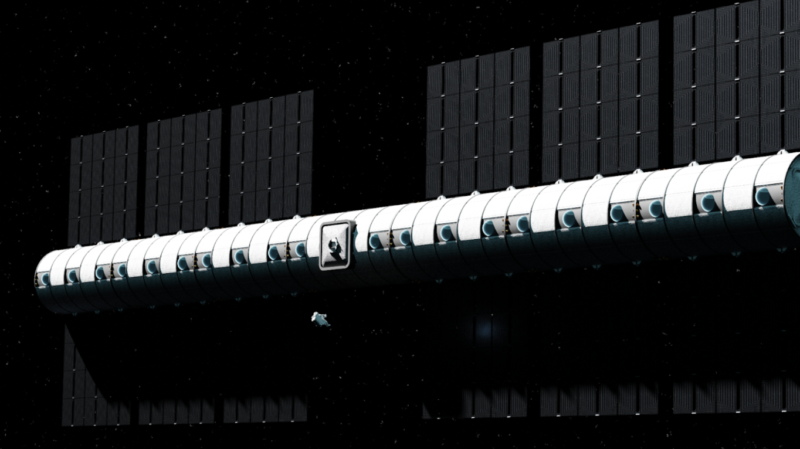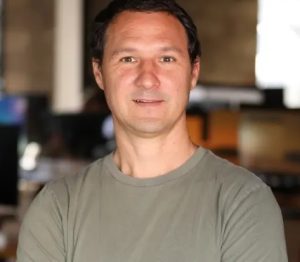
There's a new space billionaire, and this one is not interested in launching rockets. His name is Jed McCaleb, a US software developer who made his fortune in blockchain development and cryptocurrency. With an acquisition last week of a small space company named Launcher, McCaleb has shown he is serious about building a space station in low-Earth orbit.
McCaleb's space habitation company, Vast, emerged publicly last fall with a plan to build space stations that featured artificial gravity. This was significant because NASA and most other space agencies around the world have devoted little time to developing systems for artificial gravity in space, which may be important for long-term human habitation due to the deleterious effects of microgravity experienced by astronauts on the International Space Station. Vast boasted three technical advisers who were major players in the success of SpaceX—Hans Koenigsmann, Will Heltsley, and Yang Li—but did not offer too much information about its plans.
Now it seems clear that McCaleb is genuinely interested in making a run at this. An early pioneer in blockchain technology, McCaleb created Mt. Gox, the first major Bitcoin exchange. He is estimated by Forbes to be worth $2.5 billion and has vowed to invest at least $300 million into Vast Space as it seeks to develop space stations.
In-space focus
The first wave of space billionaires, including Elon Musk, Jeff Bezos, Richard Branson, and others, were primarily interested in launch. Their first major projects at SpaceX, Blue Origin, and Virgin Galactic were to develop space launch systems to bring down the cost of access to space. McCaleb said in an interview that it is time for a new generation of space companies to take advantage of the availability of commercial launch options.
So he is investing in this future. Last week Vast announced that it had acquired Launcher, a space startup based in Los Angeles that is developing a small rocket engine and an orbital tug named Orbiter. This tug launched for the first time in January on a Falcon 9 rideshare mission, intending to deliver a handful of commercial satellites to a desired orbit. However, it ultimately failed due to an orientation-control issue caused by a fault in the Orbiter SN1's GPS antenna system. The company plans to launch its SN2 mission this summer.
Launcher founder Max Haot approached McCaleb last year about investing in Launcher. At the time, McCaleb had put some funding into Firefly and was considering other space investments. However, he soon decided that his best option might be to just outright purchase Launcher for its technology and workforce.
"I was really impressed by the team," McCaleb said. "And what they were building is very much in line with what we needed for building a space station. Obviously Orbiter is a very different vehicle, but it has a lot of the same components we will need on the space station, things like flight computers, avionics, and GNC are all pretty common to what we will ultimately need."
The 80 employees of Launcher will now join the 40 staffers at Vast. McCaleb said he was not ready to talk about timelines yet or about the architecture for Vast's proposed line of space stations. The company is still in the engineering phase, conducting trade studies that will factor into the final design. But he is committed to having some form of artificial gravity, which he views as essential for healthy long-term human habitation in space.
"Any time you have people in space for a long time, whether in orbit around Mars or working on asteroid mining, they're going to want gravity," he said.
Competing for NASA funding
The first iteration of Vast's space plans will exist in low-Earth orbit, however. As NASA continues to fund the development of commercial space stations in low-Earth orbit—Axiom Space, Blue Origin, Nanoracks, and Northrop Grumman are all competing there—Vast intends to go after some of this funding as well. The company potentially has some advantages in this competition. A station with artificial gravity may have some attractiveness to NASA, and McCaleb has deeper pockets than most of the other ventures.
By this, I mean he is willing to commit some of his fortune to the concept, whereas the other companies may have less ready money to devote to these ventures and will need to go and raise funds from other investors. Even Blue Origin, with Bezos' backing, is probably somewhat limited. Three sources have told Ars that while he is supportive of the company's Orbital Reef station project, Bezos would prefer most of the funding come from NASA or other potential customers.
As for fundraising, the merger with Vast was a welcome development for Haot and Launcher.
"I'm excited to not have the challenge of fundraising anymore," Haot said. "I was focusing about 80 percent of my time on that. Now, to be a partner with Jed, I don't have to worry about that. I have to worry about the challenge of building things. To me, that's very exciting."
reader comments
209